The Book of Isaiah
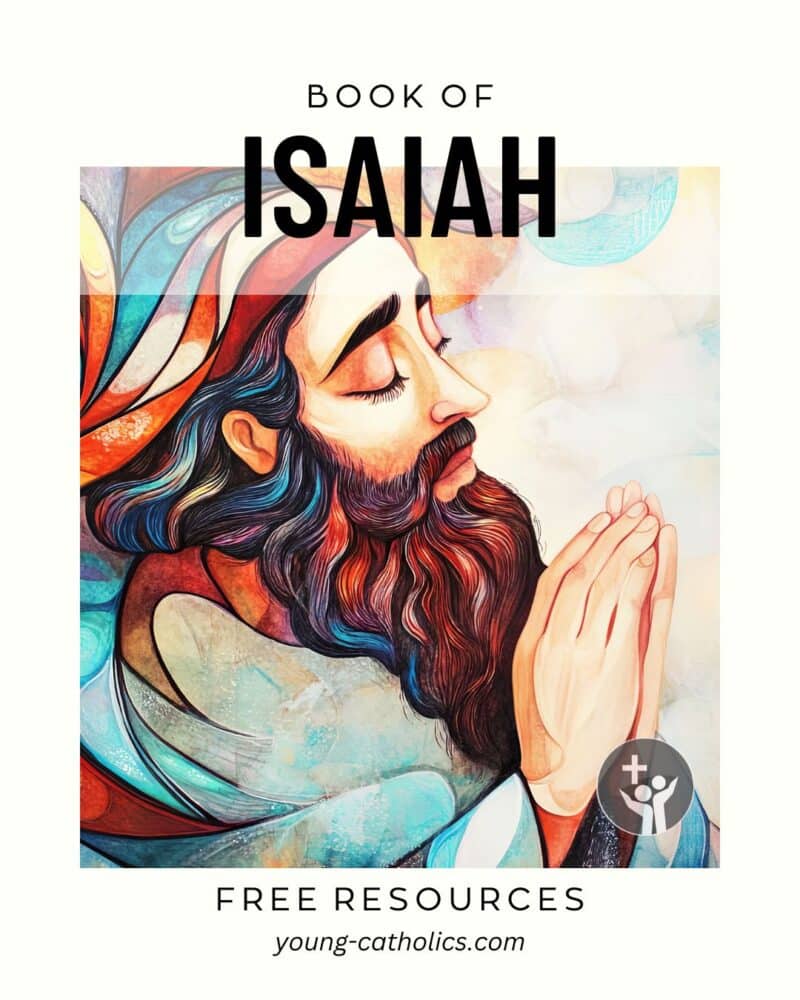
The Book of Isaiah is one of the longest books in the Bible. It is found in the Old Testament. It was written many years before the time of Jesus. It speaks about God, His people, and the promise of a Savior.
Isaiah was a prophet. He lived in the land of Judah around 700 years before Jesus was born. God gave him messages to speak to the people. These messages warned the people when they were doing wrong. But they also gave hope for the future.
Christians believe that many of Isaiah’s words point to Jesus. Isaiah speaks about someone who will suffer and save others. He talks about a child who will bring light to the world. The Church sees Jesus in these words and reads this book often, especially during Advent and Lent.
The book has many parts. Some parts talk about judgment. They show what happens when people turn away from God. Other parts speak of hope. They tell of a time when God will save His people and bring peace.
Isaiah and His Time
Isaiah lived in the southern kingdom of Judah. This was many years before Jesus. He spoke to the people during a time of trouble. There were wars and powerful nations nearby. The people were often afraid. They also turned away from God and followed false gods.
Isaiah was called by God to be a prophet. He spoke God’s words to the people. He told them to turn back to God. He warned them about the danger of sin. He also told them that God would not forget them.
The Book of Isaiah may have more than one author. The first part was likely written by Isaiah himself. The later parts may have been written by his followers. These followers shared Isaiah’s message and helped keep his words alive during exile.
The Church sees the whole book as important. It teaches about God’s justice and His mercy. It helps us see how God works through history. It also helps us understand Jesus better.
Poetry and Pictures in Isaiah
The Book of Isaiah is mostly written in poetry. It does not read like a story or a list of rules. The words are full of images. Isaiah uses simple pictures to show deep truths. He talks about light and darkness, trees and water, roads and mountains.
These pictures help the reader feel the message. When Isaiah speaks about a stump with a new shoot, he means hope after loss. When he says a child will lead, he means peace and new life. These word pictures stay in the mind.
Isaiah also speaks in songs. Some parts are called “servant songs.” These speak about someone who suffers to help others. The Church sees Jesus in these songs. We hear them during Holy Week.
The style of Isaiah helps us pray and think. It gives us words that reach the soul. That is why the Church reads Isaiah in Advent, Lent, and many feasts. His words are full of meaning for those who listen.
Big Ideas in Isaiah
The Book of Isaiah has many important themes. These ideas help us understand God’s plan and how we should live. The Church uses these themes to teach and guide us.
Some of the main themes in Isaiah are:
- God is holy – God is good and perfect. He wants His people to follow Him and live the right way.
- Sin separates us from God – When people turn away from God, bad things happen. Isaiah warns about this.
- God is faithful – Even when people sin, God still loves them. He promises to help them and bring them back.
- A Savior will come – Isaiah speaks of someone who will save the people. He will bring peace and healing. Catholics believe this is Jesus.
- Peace and justice – Isaiah shows a future where the world is made right. People will live in peace and follow God.
These themes are important in the Catholic faith. They help us see how God worked in the past and how He still works today. They help us prepare our hearts for Jesus.
Three Parts, One Message
The Book of Isaiah is long. It has 66 chapters. Many people see the book in three main parts. Each part has a different focus, but all of them show how God works with His people.
Here are the three main sections:
- Chapters 1–39
These chapters warn the people. Isaiah speaks about sin, judgment, and turning back to God. He also gives hope. In chapter 7:14, he says a young woman will have a son named Emmanuel. - Chapters 40–55
These chapters bring comfort. The people are in exile. Isaiah tells them that God will save them. He says in 40:1, “Comfort, give comfort to my people.” This section also includes the servant songs, like in chapter 53, which speaks of one who suffers for others. - Chapters 56–66
These chapters speak about a new future. The people are back home. Isaiah tells them to stay faithful. He talks about a new heaven and a new earth in chapter 65:17.
Each part builds on the one before. The message stays the same: trust in God, turn from sin, and wait for the One who will save.
Why Isaiah Still Matters
The Book of Isaiah is very old, but it still speaks to us today. It shows us who God is. It helps us know what is right and what is wrong. It gives hope when things are hard.
Isaiah tells us to trust God, even when the world feels broken. He reminds us that God keeps His promises. He also shows us the way to peace and mercy.
The Church reads Isaiah in Mass during Advent, Lent, and other special times. His words help us wait for Jesus and follow Him. They help us see Jesus as the one who saves us and brings new life.
In a world full of fear, noise, and sin, Isaiah points us back to God. He helps us stay strong, faithful, and ready for what God is doing.
Isaiah at Mass
The Book of Isaiah is read often at Mass. It is one of the most used books in the Roman Catholic lectionary. The Church chooses many readings from Isaiah for special seasons and feast days.
During Advent, we hear Isaiah speak of hope and light. He talks about a child who will lead us (Isaiah 9:6) and a voice crying out in the desert (Isaiah 40:3). These help us prepare for Christmas.
During Lent and Holy Week, we hear the servant songs. These speak of one who suffers for others (Isaiah 53). The Church connects these readings to Jesus and His Passion.
Isaiah is also read at other times in the year. His words speak of peace, justice, and the promise of salvation. They help us listen to God and follow His way.
Sunday reading for all three liturgical cycles come from Isaiah. Click on the link for more information and resources.

1st Sunday of Advent A
Walking in God’s Light
Isaiah 2:1-5 gives a vision of peace in the future. People from many nations will come to God’s mountain to learn His ways. They will want to follow His path and live by His teaching. God will guide them with justice.
In this future time, weapons will be turned into tools for farming. Nations will stop fighting and learn peace instead. People are called to walk in the light of the Lord. The message is clear: when we follow God, we choose peace over war and truth over fear.

27th Sunday in Ordinary Time A
The Vineyard That Failed
Isaiah 5:1-7 tells a story about a vineyard that was cared for with great effort. The owner did everything right—he cleared the land, planted good vines, and built a watchtower. But instead of good fruit, the vineyard gave only bad fruit.
This vineyard is a picture of God’s people. He gave them everything they needed, but they did not live as they should. Instead of justice, there was violence. Instead of right actions, there was suffering. Because of this, the vineyard would no longer be protected. This is a warning to stay faithful and live in a way that pleases God.
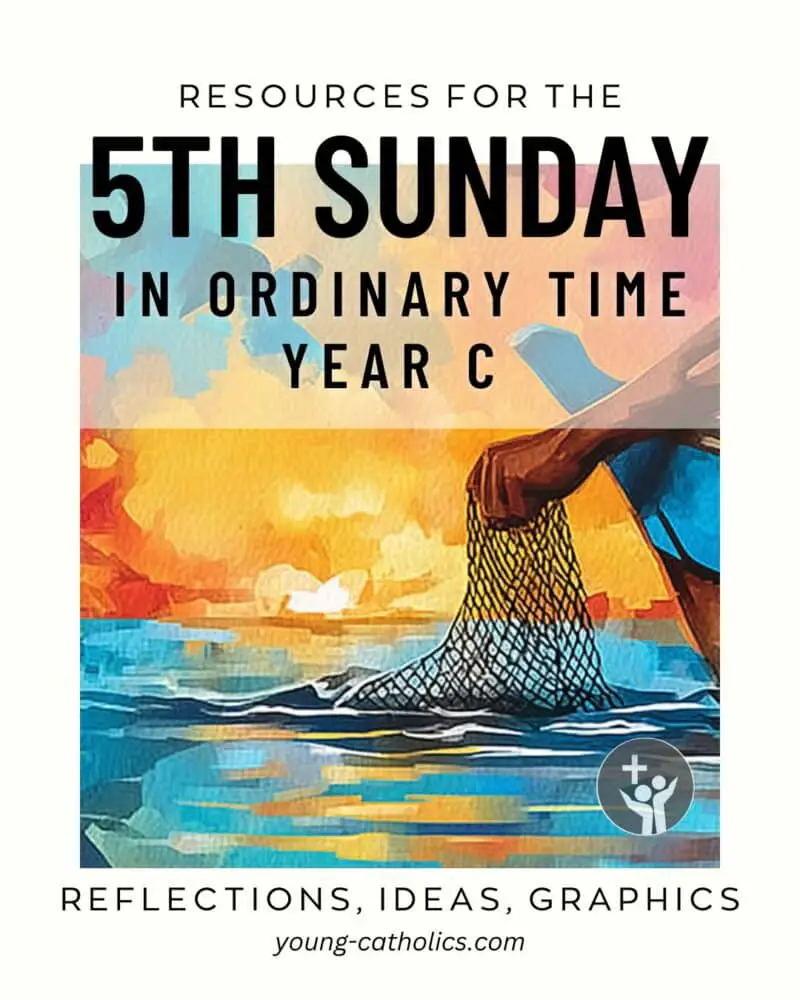
5th Sunday in Ordinary Time C
Isaiah Says Yes to God
Isaiah 6:1-2A, 3-8 describes a vision where Isaiah sees the Lord on a throne. Angels are around Him, calling out holy words. The place shakes, and smoke fills the space. Isaiah feels unworthy and afraid because he knows he is a sinner.
One of the angels touches Isaiah’s lips with a burning coal, saying his sin is taken away. Then Isaiah hears God asking, “Whom shall I send?” Isaiah answers, “Here I am. Send me.” This reading shows Isaiah’s call to serve and his willing response to God.

4th Sunday of Advent A
A Sign of Hope
Isaiah 7:10-14 tells about a time when the king of Judah was afraid. God offered to give him a sign to show that He was with His people. But the king refused to ask for one, so God gave a sign anyway.
The sign was that a young woman would have a son, and his name would mean that God is with us. This promise gave hope to the people during a hard time. Christians believe this points to the birth of Jesus, who came to save and stay with us.
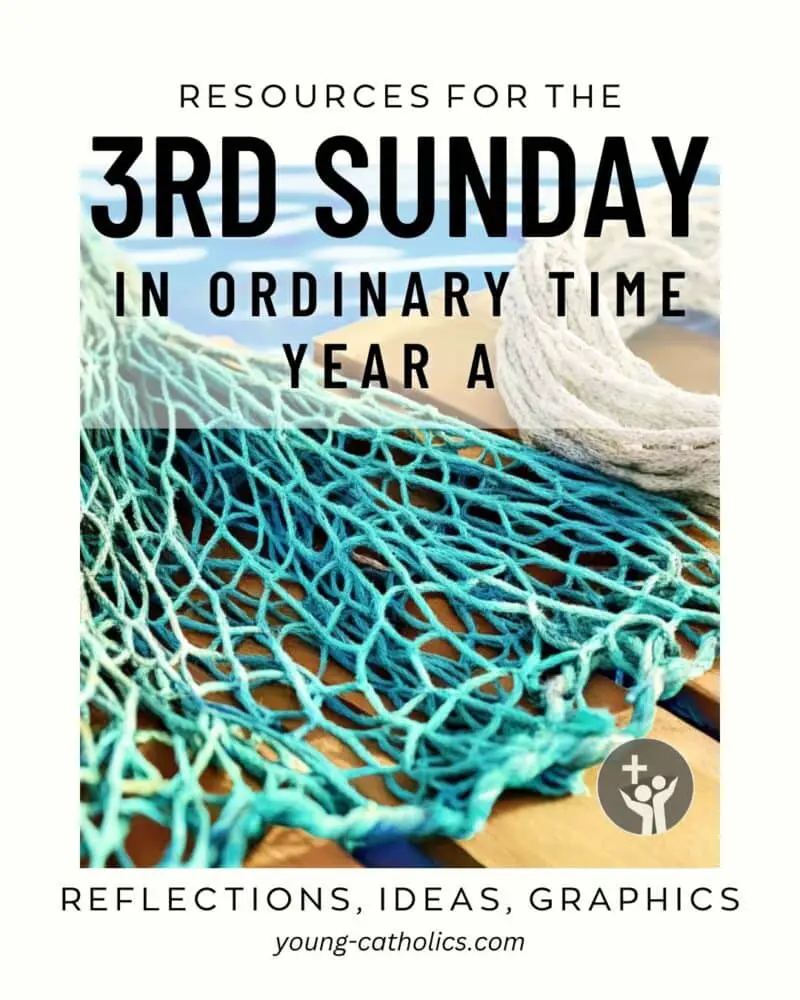
3rd Sunday in Ordinary Time A
From Darkness to Joy
Isaiah 8:23–9:3 tells of a people who once lived in sadness and fear. They were in a dark time, but God promises that things will change. Light will shine where there was once gloom. The land that suffered will be honored again.
As the light grows, the people will rejoice. Their burdens will be lifted. God will bring peace, and the nation will grow strong again. Joy will return, like at harvest time or after a victory. This reading gives hope that God brings light after darkness.

The Nativity of the Lord: Christmas
A Light in the Darkness (Mass at Night)
In Isaiah 9:1-6, the people are in a time of darkness and sadness. God promises that things will change. He will bring light, freedom, and joy. The burdens the people carry will be taken away, and peace will come at last.
This promise is fulfilled through a child who will lead with justice and peace. His rule will never end. The Church understands this to point to Jesus, who was born to bring peace and guide us in God’s ways.

2nd Sunday of Advent A
A Peaceful Kingdom
Isaiah 11:1-10 speaks of a new leader who will come from the family of Jesse. He will be wise, fair, and strong. He will love what is right and defend the poor. God’s Spirit will rest on him and help him rule with justice.
This leader will bring peace to the world. Even wild animals will live safely with each other. A child will lead them all. There will be no harm or fear in God’s holy place. Everyone will know the Lord. This vision gives hope for a world where peace and goodness are real.

3rd Sunday of Advent C – Gaudete Sunday
Sing to the Lord with Joy
Isaiah 12:2-3, 4, 5-6 is a song of trust and joy. It says that God gives strength and saves His people. Because of this, they can live without fear. They draw water from the well of salvation and find peace in Him.
The people are called to give thanks, tell others about God’s work, and sing with joy. In verses 4 to 6, the message is clear: God is great and close to His people. Everyone should rejoice and praise His name. This reading is a call to remember God’s help and to share that joy with the world.
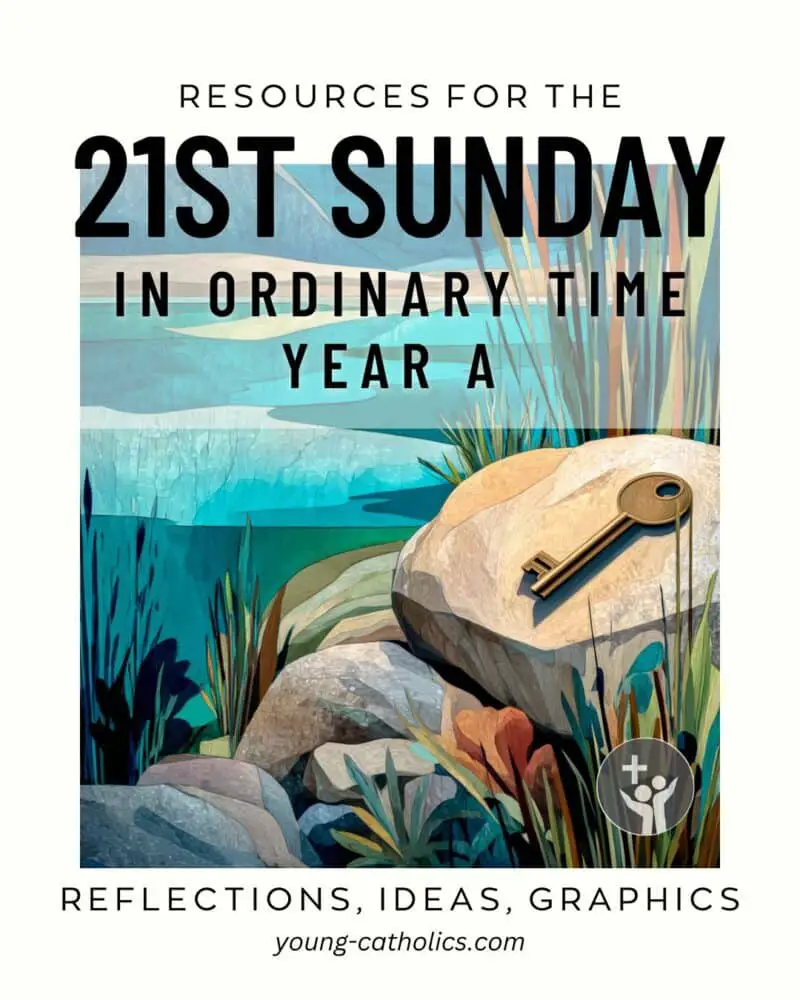
21st Sunday in Ordinary Time A
A New Leader Chosen by God
Isaiah 22:19-23 tells about a change in leadership. A man who held power is removed from his place. God chooses someone new, a servant named Eliakim, to take his place and care for the people.
God gives Eliakim authority and trust. He will be like a strong peg, firmly placed, able to carry the weight of responsibility. He will lead with care, like a father to the people. This shows that true leadership comes from God and should be used to serve others.

28th Sunday in Ordinary Time A
A Feast and a Promise
Isaiah 25:6-10a describes a feast prepared by God for all people. It is a sign of joy, unity, and blessing. At this feast, God removes sadness, takes away shame, and brings comfort to the nations.
In these verses, God promises to destroy death and wipe away every tear. People will say they waited for Him, and now they are saved. On that day, His care will be clear, and His people will rejoice. This reading reminds us that God’s plan brings peace and hope to everyone.
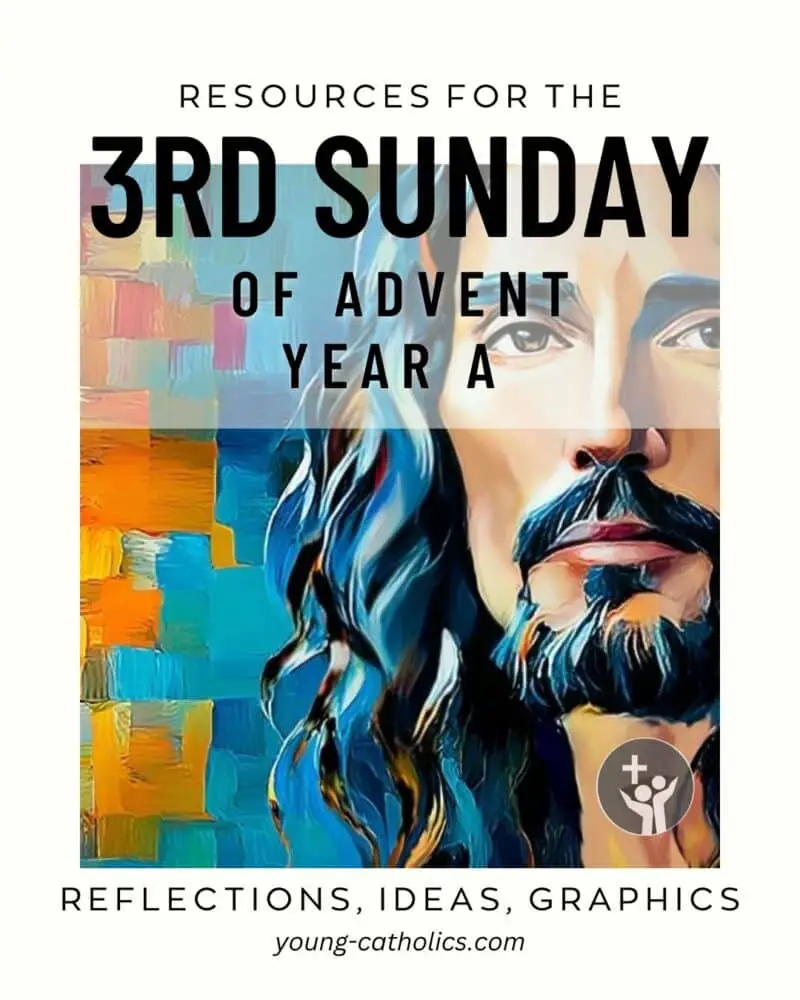
3rd Sunday of Advent A – Gaudete Sunday
Joy and Healing Are Coming
Isaiah 35:1-6A, 10 shows a picture of joy and new life. The desert will bloom like a garden. Weak hands will grow strong. Fearful hearts will find courage. God is coming to save His people and bring healing to the land.
Those who could not see, hear, or walk will be healed. There will be singing and gladness. In Isaiah 35:10, the people God saves will return with joy. Sadness and worry will be gone. They will walk on a safe road, full of peace and joy.

23rd Sunday in Ordinary Time B
God Will Bring Healing and Joy
Isaiah 35:4-7A tells people not to be afraid. God is coming to save them. He will bring justice and help those who suffer. This message gives hope to those who feel weak, worried, or alone.
When God comes, blind eyes will see, deaf ears will hear, and those who cannot walk will jump for joy. Dry land will be filled with water. Life will grow where there was once nothing. This reading shows that when God acts, everything changes for the better.

2nd Sunday of Advent B
Comfort for God’s People
Isaiah 40:1-5, 9-11 brings a message of comfort and hope. God tells His people that their suffering is ending. He is coming to lead them, and the way should be made ready. Valleys will be filled, hills made low, and rough paths made smooth. Everyone will see God’s glory.
The people are told to go up high and announce the good news. God is coming with power, but also with care. He will gather His people like a shepherd gathers sheep. He will carry the lambs and gently lead those who are weak. This shows God’s strength and kindness.

Baptism of the Lord Year C
Prepare the Way for the Lord
Isaiah 40:1-5, 9-11 gives a message of comfort to God’s people. Their time of trouble is ending. God is coming, and the people must get ready. The land will be made smooth—valleys lifted, hills lowered—so that all people can see God’s glory.
In verses 9-11, the people are told to share this good news. God comes with strength, but also with care. He will lead His people like a shepherd, gathering the weak and guiding them gently. This reading gives hope and reminds us that God brings both power and kindness.
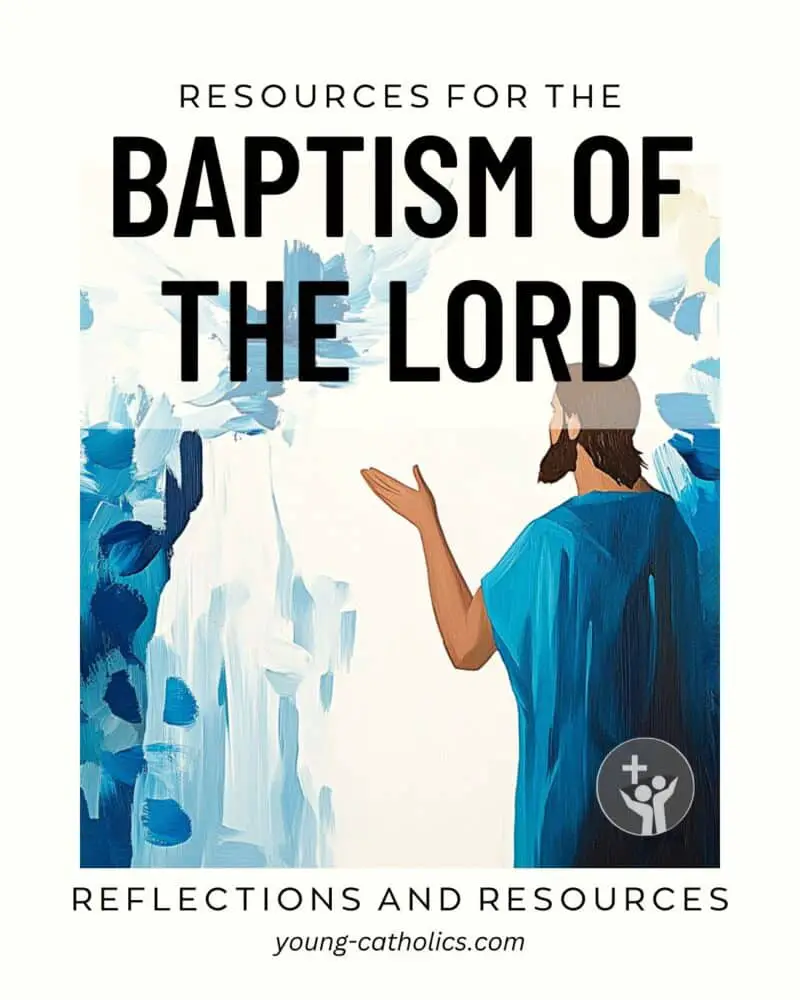
Baptism of the Lord
The Servant Who Brings Justice
Isaiah 42:1-4, 6-7 introduces a servant chosen by God. He is gentle and quiet but brings justice to the nations. He does not break the weak or crush the tired. He stays steady and does not give up until his work is done.
God calls this servant to be a light for others. He will help open the eyes of the blind and free people who are trapped in darkness. Catholics believe this servant points to Jesus, who brings healing, hope, and justice to the world.

5th Sunday of Lent C
God Makes a New Way
Isaiah 43:16-21 reminds the people that God once made a path through the sea to save them. But now He tells them not to focus only on the past. Something new is happening. God is making a road in the desert and rivers in dry places.
Even wild animals will honor God because He provides water in the wilderness. In verses 20 and 21, God says He is doing this for His people, the ones He formed to praise Him. This reading gives hope that God can bring new life, even in hard or dry times.

7th Sunday in Ordinary Time B
Forget the Past—God Is Doing Something New
Isaiah 43:18-19, 21-22, 24-25 tells the people to stop holding on to the past. God is doing something new, and it is already happening. He is making a way through the desert and bringing life where there was none.
The people have not always called on God or honored Him. Still, God chooses to forgive their sins. He wipes them away, not because of what they have done, but because of who He is. This reading shows that God brings new chances and mercy, even when people fall short.

29th Sunday in Ordinary Time A
God Uses Whom He Chooses
Isaiah 45:1, 4-6 tells how God chooses Cyrus, a foreign king, to help carry out His plan. God gives him power, even though Cyrus does not know Him. This shows that God can work through anyone to guide history and help His people.
God says He does this for the sake of His people, Israel. He reminds them that He is the only God. There is no other. He gives strength and calls people by name. This reading shows that God is always in control, even through unexpected people and events.
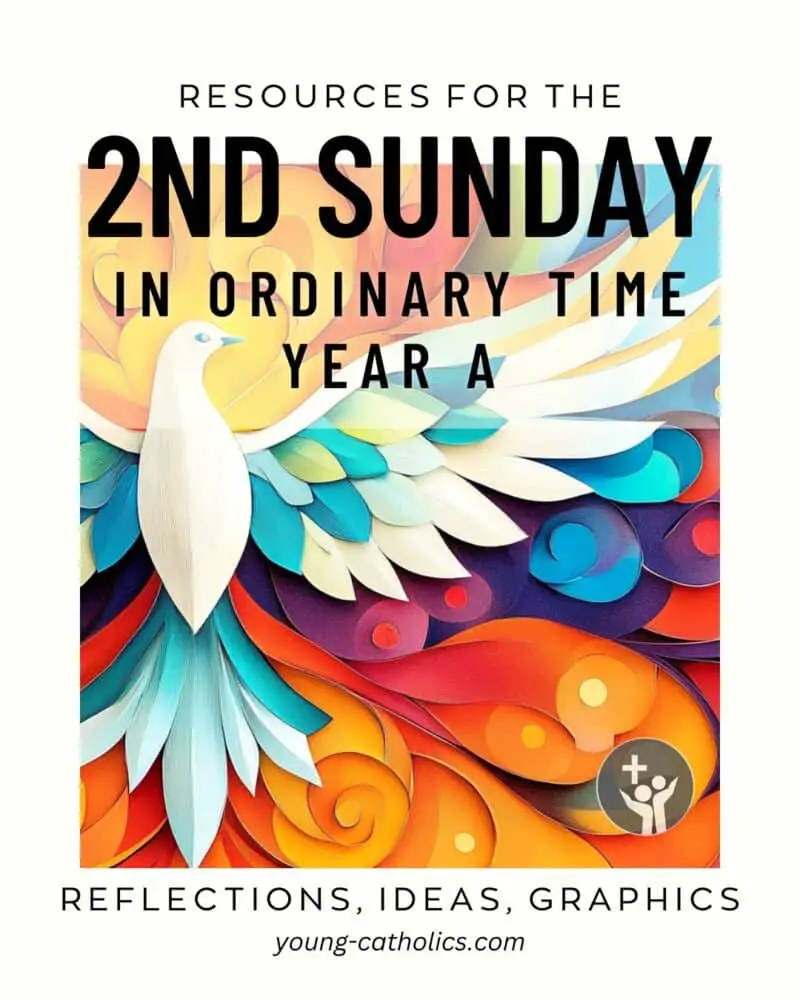
2nd Sunday in Ordinary Time A
Called to Be a Light
Isaiah 49:3, 5-6 speaks about a servant chosen by God to bring His people back. Even before birth, this servant was formed and given a mission. His work is not only for Israel but for all nations.
God says the servant will be a light to the nations. He will help bring salvation to the ends of the earth. This shows that God’s plan is for everyone, not just one group. Catholics see this servant as Jesus, who came to save all people and lead them back to God.

8th Sunday in Ordinary Time A
Never Forgotten
Isaiah 49:14-15 speaks to people who feel forgotten by God. They think He has turned away and left them behind. But God answers with strong love and care. He reminds them that He never forgets His people.
Just as a mother cannot forget her child, God says He will not forget those who belong to Him. His love is steady, even when times are hard. This reading gives comfort to anyone who feels alone or abandoned. God is always near.
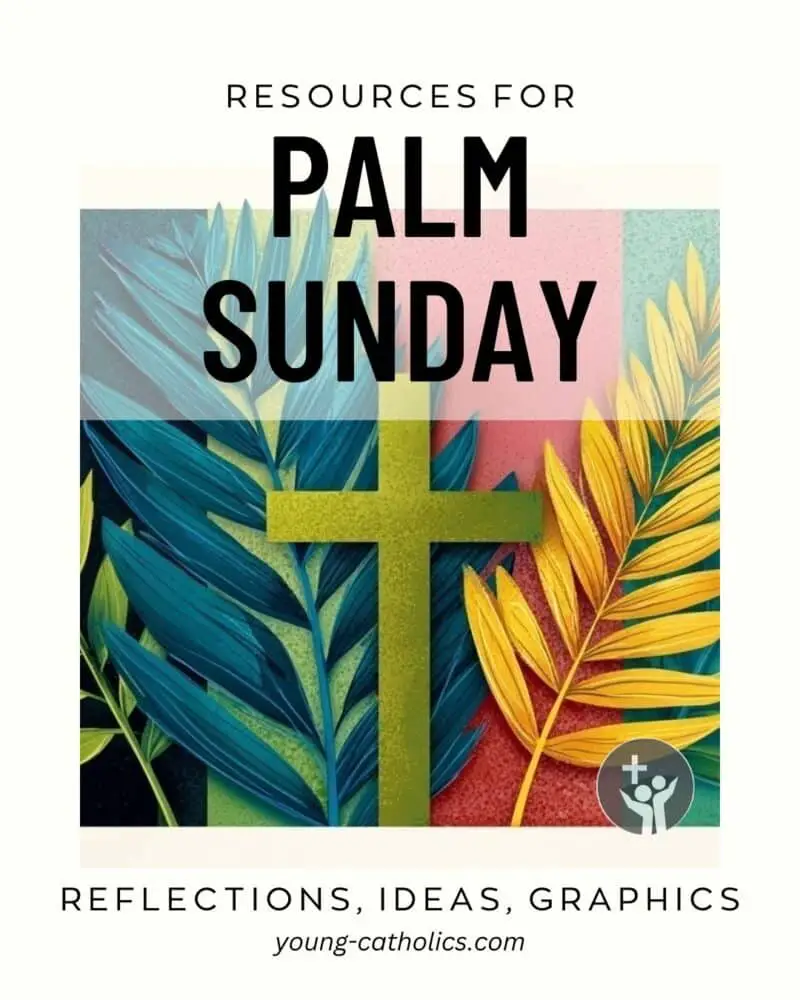
Palm Sunday (Passion Sunday)
Strength in Suffering
Isaiah 50:4-7 speaks about a servant who listens to God every day and speaks words that help others. Even when people insult him and hurt him, he does not fight back. He stays strong and trusts God.
The servant knows that God helps him, so he is not afraid or ashamed. He sets his face like stone, ready to do what is right. Christians believe this points to Jesus, who suffered but stayed faithful to God and gave His life for others.

24th Sunday in Ordinary Time B
The Servant Stays Strong
Isaiah 50:5-9A describes a servant who listens to God and obeys, even when it leads to suffering. People insult him and hurt him, but he does not fight back. He stays faithful and does not run away from his mission.
The servant is not afraid because he knows God helps him. He stands firm, knowing he will not be put to shame. He is ready to face his accusers, trusting that God is near and will defend him. This reading points to courage, patience, and trust in God during hard times.

The Nativity of the Lord: Christmas
Good News on the Mountain (Mass During the Day)
Isaiah 52:7-10 describes a messenger who brings good news to the people. The message is one of peace and salvation. The people are filled with joy because they know God is near and still watches over them.
The reading ends with a promise that God’s saving power will be seen by all nations. His care is not hidden or just for a few. He comes to bring comfort and freedom to everyone, no matter where they live.

Good Friday of the Lord’s Passion
The One Who Suffered for Us
Isaiah 52:13-53:12 tells about a servant who suffers, but is raised up by God. Many are shocked by his pain, but his suffering brings healing. He is rejected, bruised, and punished, even though he did nothing wrong. He stays silent and accepts it all.
This servant carries the sins of others. He gives his life like an offering. Though he dies, he is not forgotten. God lifts him up and gives him a place among the great. His pain brings peace to many. The Church sees this as pointing to Jesus and His Passion.

29th Sunday in Ordinary Time B
The Servant’s Suffering Brings Life
Isaiah 53:10-11 tells how the servant suffers, but his pain is not wasted. His life is offered for others. Because of this, he will see the results of his work and live on. His mission will succeed.
Through his suffering, many people are made right with God. The servant knows pain, but he also understands the purpose behind it. He carries the weight of others’ wrongs and brings healing. Christians see this as a sign pointing to Jesus and His saving work.
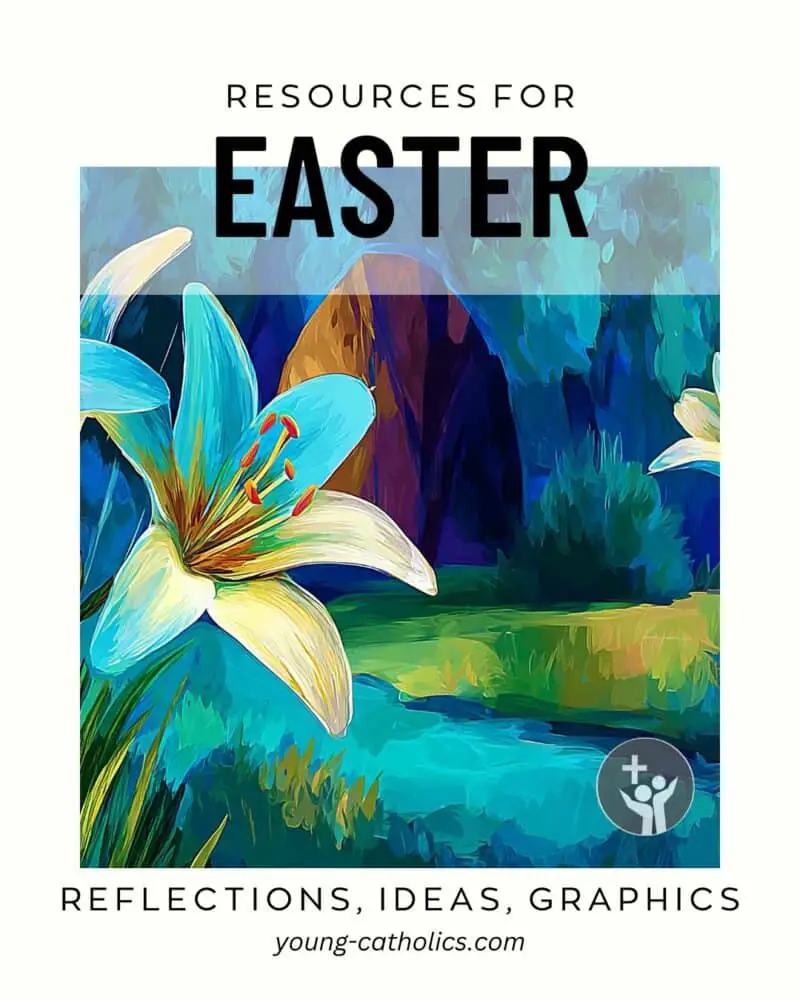
Easter Sunday – The Resurrection of the Lord
God Will Not Leave You
Isaiah 54:5-14 speaks of God as a faithful spouse who calls His people back with love. For a short time, they felt alone, but God promises to bring them back with care. His mercy is strong, and His promise of peace will not be taken away.
The people are told not to be afraid. God will protect them and make their foundation strong. Even if trouble comes, they will not fall. God says they are safe with Him. He will not forget them. His love will not fade.
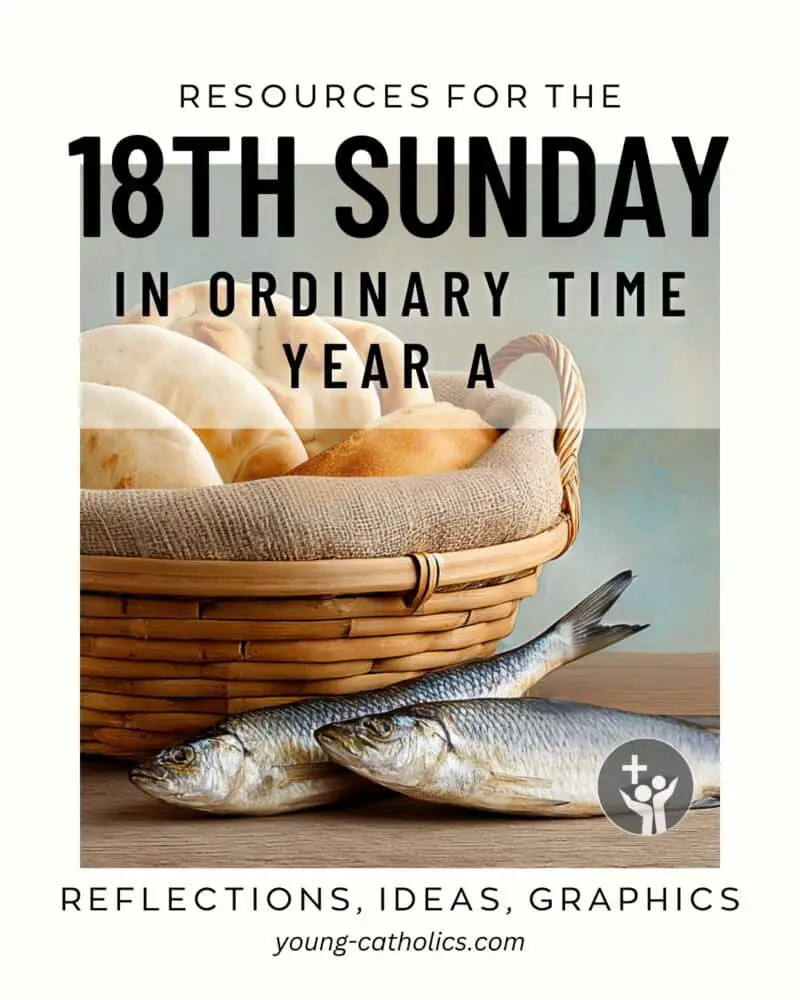
18th Sunday in Ordinary Time Year A
An Invitation to True Life
God calls everyone to come and receive what they need most in Isaiah 55:1-3. He offers food, drink, and life without cost. Nothing we can buy will satisfy us the way God can. He invites us to turn to Him instead of chasing things that leave us empty. His care is free and full of goodness for those who listen.
He promises life and joy to those who stay close to Him. This is not just about eating well but about being renewed inside. God reminds His people of His lasting promise, the same one made to David. His love and care are faithful and unending for all who come to Him.

Baptism of the Lord B
Come to the Water of Life
In Isaiah 55:1-11, God invites everyone to come to Him freely. He offers food and drink that truly satisfies. We don’t need money or status—just an open heart. God promises a lasting relationship, like the one He made with David. This is for all nations, not just one group of people.
The Lord calls us to turn away from selfish ways and follow Him. He forgives with kindness. His plans are greater than we can understand. Just like rain makes plants grow, His word brings life and change. It always fulfills His purpose.

Easter Sunday – The Resurrection of the Lord
Come to the Lord and Live
Isaiah 55:1-11 invites everyone to come to God and receive what they truly need. People are told to listen and eat what gives life, even if they have no money. God offers something better than food or drink—His word and His promise.
The reading reminds us that God’s ways are not like our ways. His thoughts are higher than ours. Just like rain makes the earth grow, God’s word always does what He wants. It never returns empty. Those who listen and follow will find joy and peace.

25th Sunday in Ordinary Time A
Turn to the Lord While There Is Time
Isaiah 55:6-9 calls people to seek the Lord while He is near. They are told to turn away from sin and return to God, who is ready to forgive. Now is the time to change and follow His ways.
These verses also remind us that God’s thoughts and ways are very different from ours. His plans are higher and greater than we can fully understand. Even when we don’t see the full picture, we are called to trust Him and walk in His path.
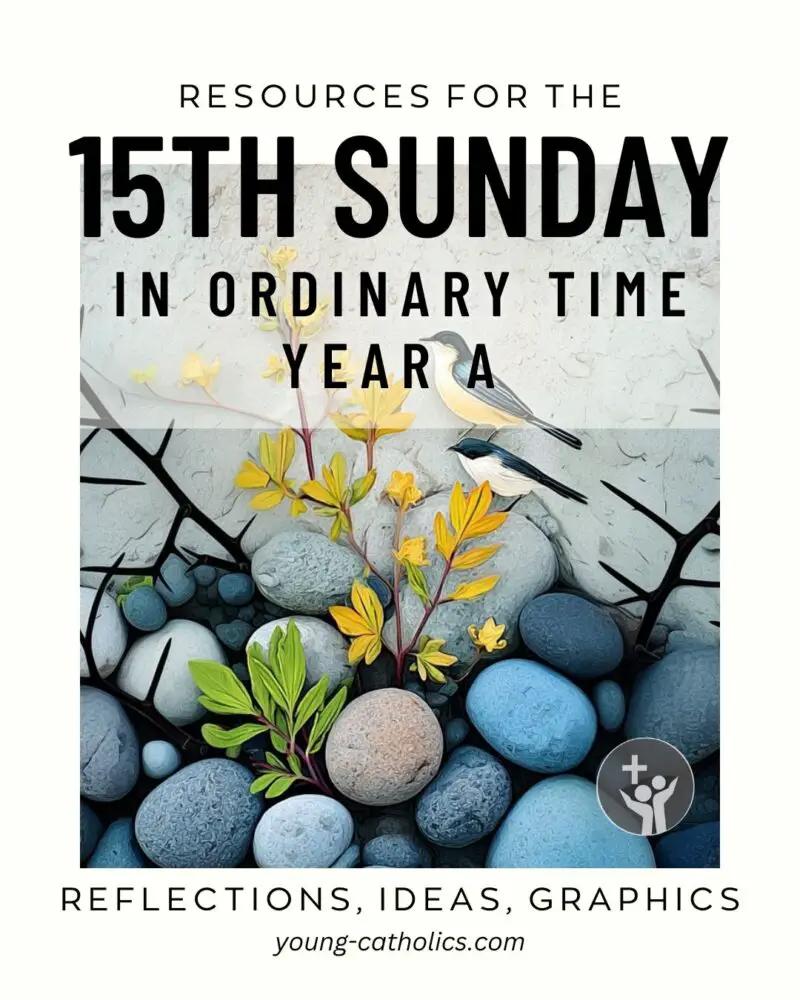
15th Sunday in Ordinary Time A
God’s Word Does Its Work
Isaiah 55:10-11 compares God’s word to rain and snow that fall to the ground. Just as water helps plants grow and give food, God’s word helps bring life and change. It is sent for a reason and always does what God wants.
These verses remind us that God’s word is never wasted. It always has a purpose. It works quietly, like rain soaking the earth, but it brings real results. This gives us confidence when we listen to Scripture or share it with others. God is at work, even when we do not see it right away.
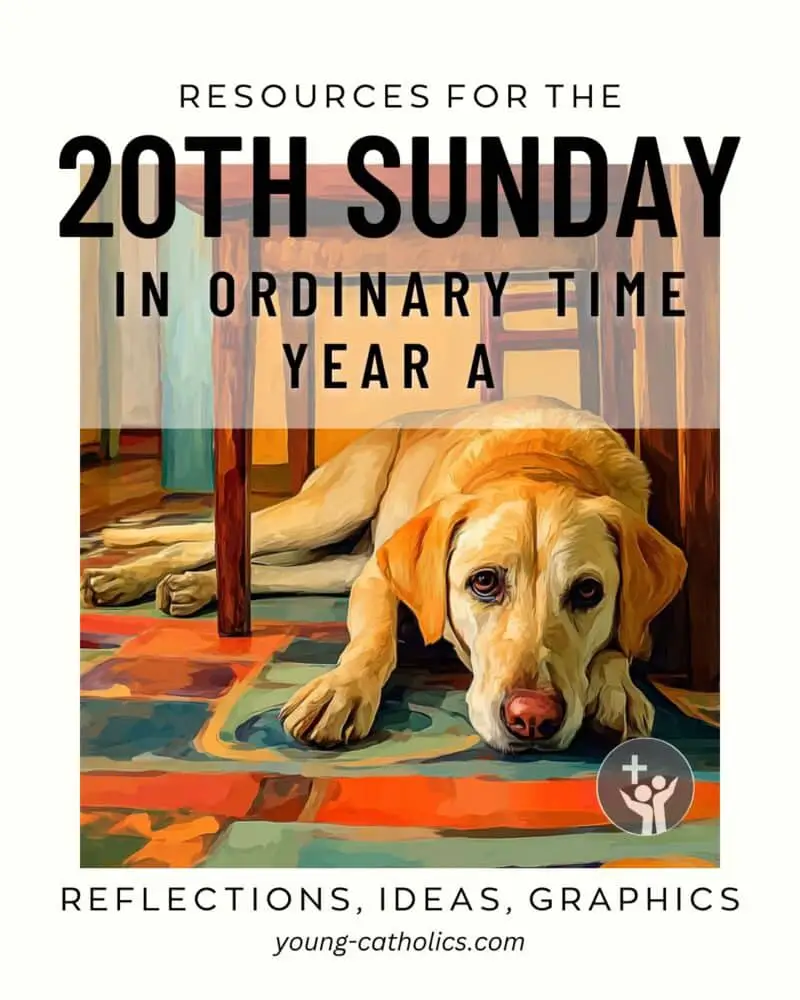
20th Sunday in Ordinary Time A
A House for All People
Isaiah 56:1, 6-7 speaks about doing what is right and staying close to God. God invites not just His own people, but also those from outside the nation who choose to follow Him and keep His ways. Everyone who honors His name and lives faithfully is welcome.
God says He will bring these people to His holy place. He will give them joy in worship, and their prayers and offerings will be accepted. His house will be a house of prayer for all nations. This shows that God’s love and mercy are open to all who seek Him.

5th Sunday in Ordinary Time A
Let Your Light Shine
Isaiah 58:7-10 teaches that true worship means helping others. God asks His people to share food with the hungry, shelter the homeless, and care for those in need. It is not enough to follow rules. God wants love in action.
When people care for others, light will shine in their lives. Healing will come quickly, and God will guide them. Their kindness will push away darkness. God listens when people help each other. This reading reminds us that faith must be shown through mercy and justice.
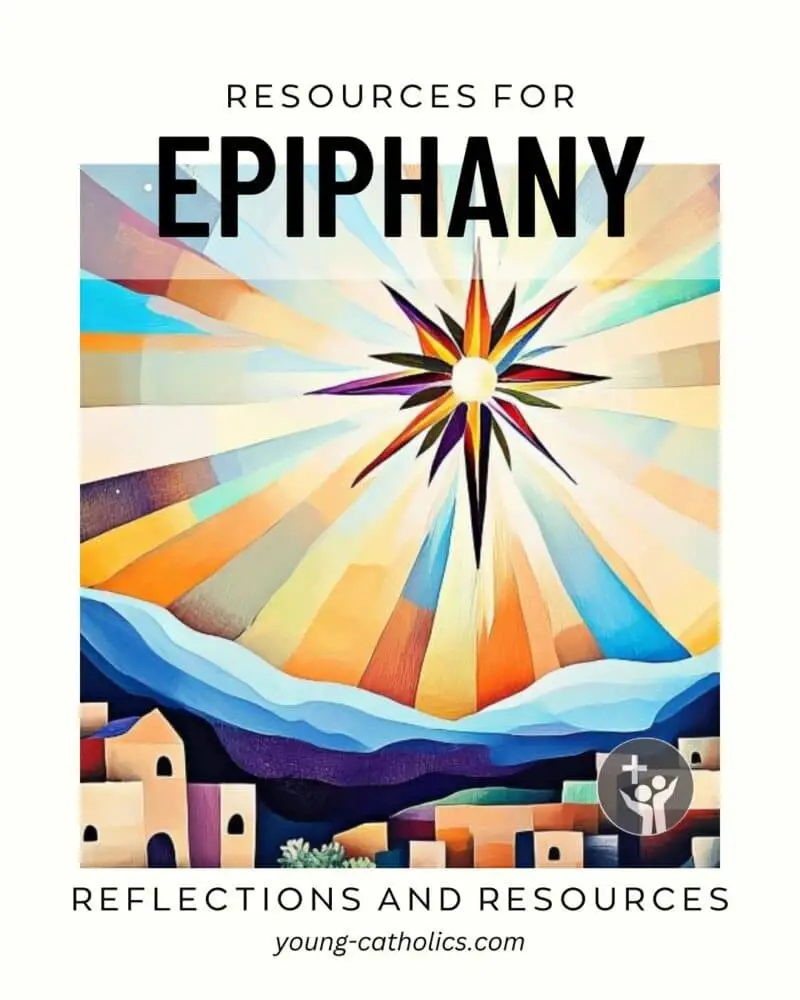
Epiphany of Our Lord
Light for the Whole World
Isaiah 60:1-6 speaks of a time when God’s light shines on His people. Darkness may cover the earth, but His glory rises over them. Others will see this light and be drawn to it. Nations and leaders will come close, looking for hope and truth.
The people are told to look around and see the change. Sons and daughters will return home. Joy will fill their hearts. Gifts will come from far away—gold and frankincense—brought with praise. This reading reminds us that God’s light is meant to be shared. It reaches beyond one place and welcomes all.

3rd Sunday of Advent B – Gaudete Sunday
Good News and Great Joy
Isaiah 61:1-2A, 10-11 speaks of someone sent by God to bring good news to the poor, heal the broken, and free those in chains. This person is filled with God’s spirit and brings hope to those in need. His message is one of comfort and justice.
The reading ends with joy and praise. The speaker is glad because God has saved and blessed him. He is dressed like a bridegroom or bride, ready for a celebration. Just like seeds grow into plants, God’s goodness will grow among all people. Everyone will see what God has done.

The Nativity of the Lord: Christmas
God Will Not Stay Silent (Vigil Mass)
In Isaiah 62:1-5, God says He will not be quiet while His people suffer. He will make things right and show the world their goodness. He will act until His people shine like light and are lifted up again.
The people will no longer be seen as abandoned or alone. Instead, they will be seen as loved and chosen. God rejoices in them the way a groom rejoices in his bride. He stays close and never lets go.

2nd Sunday in Ordinary Time C
A New Name and a New Joy
Isaiah 62:1-5 speaks about God’s promise to stay with His people. He will not rest until they shine like a bright light. Everyone will see that they are special and chosen. God will give them a new name that shows they belong to Him.
In these verses, God says His people will no longer be called forgotten or abandoned. Instead, they will be called His delight. Just like a groom is happy with his bride, God will rejoice in His people. This reading shows that God’s care brings honor and joy.

The Nativity of the Lord: Christmas
The Lord Is Coming to Save (Mass at Dawn)
Isaiah 62:11-12 speaks of God coming to rescue His people. He is not far away or silent. He comes with strength and blessing. His arrival brings hope and joy to those who have been waiting. It is a message meant for the whole world to hear.
God also gives His people new names in this passage. They are no longer seen as lost or forgotten. Instead, they are called holy and redeemed. God shows that they are wanted and cared for, and that He will not leave them behind.

1st Sunday of Advent B
Return to Us, O Lord
Isaiah 63:16B-17, 19B; 64:2-7 is a prayer asking God to come close again. The people feel lost and far from Him. They remember that God is their Father and Redeemer. They ask why He let them wander and why He seems hidden from them.
They speak of times when God showed His power, and they long for that again. The people admit their sins and failures. They feel worn out and unclean. Yet they still hope, because they know they belong to God. Like clay in a potter’s hand, they ask Him to shape them once more.
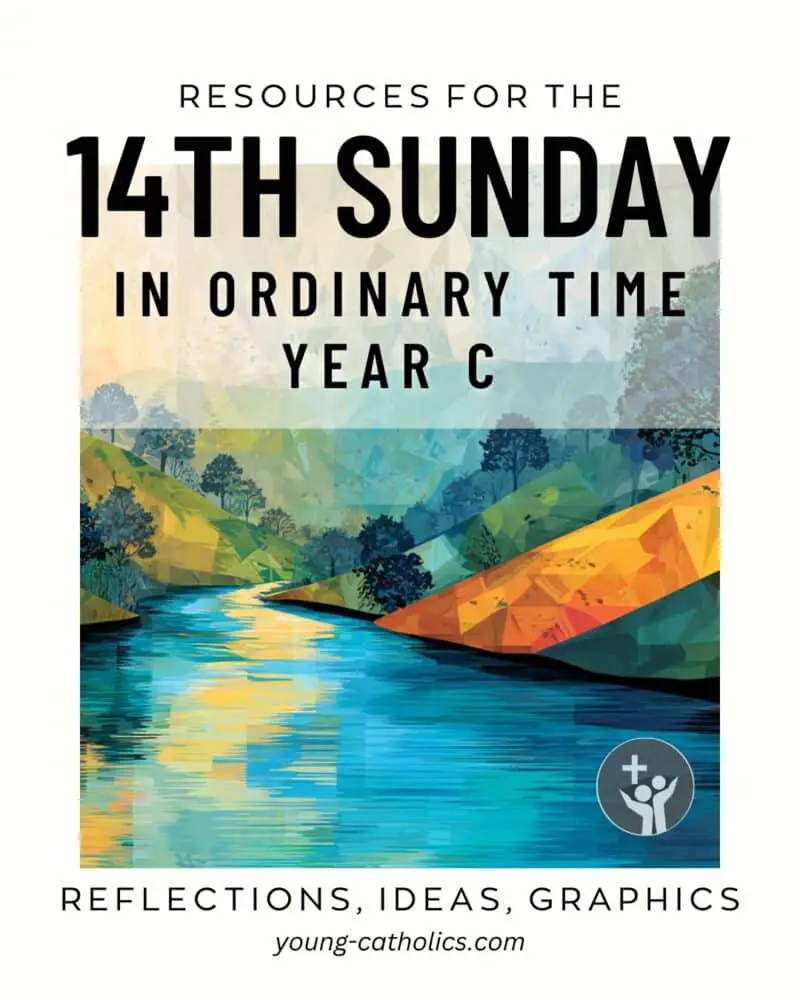
14th Sunday in Ordinary Time C
Joy and Comfort from the Lord
Isaiah 66:10-14C speaks of Jerusalem like a mother who brings comfort and care. The people are told to rejoice with her. They will find peace, safety, and strength, like children held in their mother’s arms.
God promises to care for His people in this way. He will bring healing and joy. In verse 14c, it says that those who trust in Him will feel renewed. This reading gives hope that God will comfort and care for His people like a loving parent.
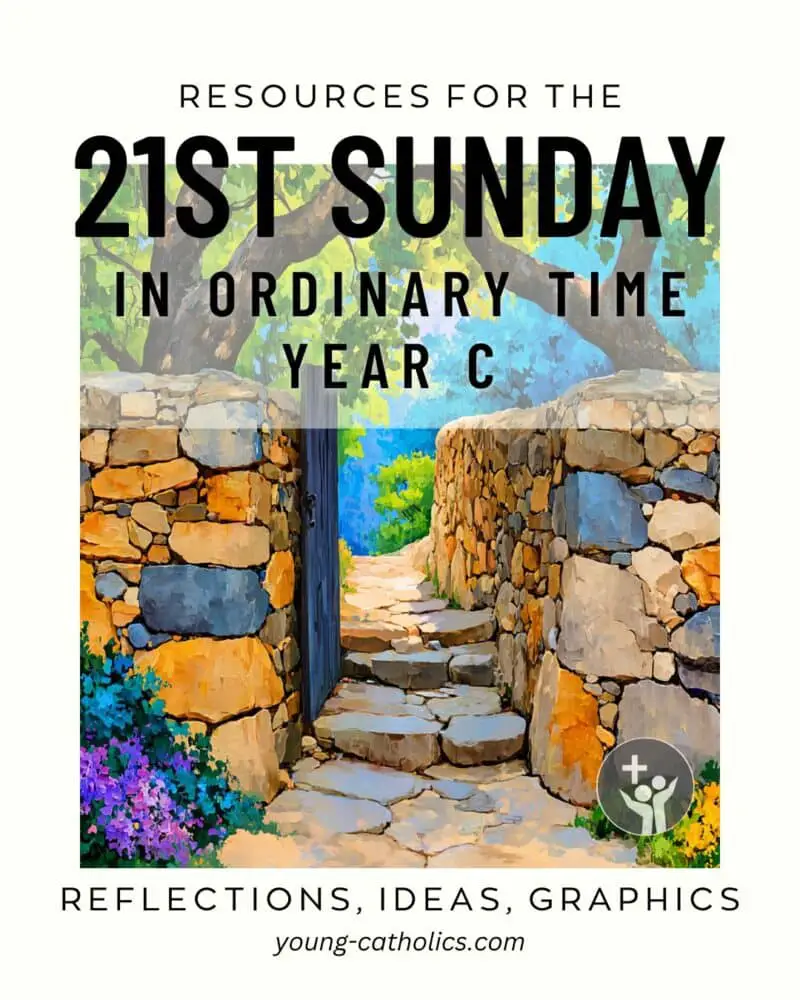
21st Sunday in Ordinary Time C
All People Are Welcome
Isaiah 66:18-21 speaks of a time when God will gather people from all nations. Everyone will see His glory. He will send messengers to distant lands to share what He has done, even to places that have never heard of Him before.
People from many nations will come and worship together. God will accept offerings from them just as He does from His own people. Some of them will even become priests and servants in His house. This reading shows that God’s love and call are for all people, not just a few.
At Weekday Masses
- Monday of the 15th Week in Ordinary Time II – Isaiah 1:10-17 A Call for Justice
- Tuesday of the 2nd Week of Lent – Isaiah 1:10, 16-20 Call to Righteousness
- Monday of the 1st Week of Advent – Isaiah 2:1-5 Vision of Peaceful Zion
- Monday of the 1st Week of Advent (Year A) – Isaiah 4:2-6: The LORD’s Glorious Protection
- Saturday of the 14th Week in Ordinary Time II – Isaiah 6:1-8 Isaiah’s Vision of the Lord
- Tuesday of the 15th Week in Ordinary Time II – Isaiah 7:1-9 God’s Assurance to Ahaz
- Wednesday of the 15th Week in Ordinary Time II – Isaiah 10:5-7, 13b-16 God’s Judgment on Assyria
- Advent Weekday on December 20 – Isaiah 7:10-14 The Sign of Emmanuel
- The Annunciation – Isaiah 7:10-14; 8:10: Divine Proposal and Refusal
- Tuesday of the 1st Week of Advent – Isaiah 11:1-10 Hope for Peaceful Kingdom
- Wednesday of the 29th Week in Ordinary Time II – Isaiah 12:2-6 Joy in God’s Salvation
- The Most Sacred Heart of Jesus B – Isaiah 12:2-3, 4, 5-6 Joy from the Springs of Salvation
- Friday of the 19th Week in Ordinary Time II – Isaiah 12:2-6 God is My Savior
- Wednesday of the 1st Week of Advent – Isaiah 25:6-10a The Lord’s Mountain Feast
- Thursday of the 1st Week of Advent – Isaiah 26:1-6 Song of Judah’s Salvation
- Thursday of the 15th Week in Ordinary Time II – Isaiah 26:7-9, 12, 16-19 The Way of the Just
- Friday of the 1st Week of Advent – Isaiah 29:17-24 The Lord’s Promise of Renewal
- Saturday of the 1st Week of Advent – Isaiah 30:19-21, 23-26 God’s Gracious Promise
- Monday of the 2nd Week of Advent – Isaiah 35:1-10 Desert’s Transformation and Joy
- Friday of the 15th Week in Ordinary Time II – Isaiah 38:1-6, 21-22, 7-8 Hezekiah’s Healing
- Tuesday of the 2nd Week of Advent – Isaiah 40:1-11 Comfort for God’s People
- Wednesday of the 2nd Week of Advent – Isaiah 40:25-31 Isaiah’s Vision of Renewal
- Thursday of the 2nd Week of Advent – Isaiah 41:13-20 Isaiah’s Vision of Renewal
- Monday of Holy Week – Isaiah 42:1-7 The Servant of Justice
- Wednesday of the 3rd Week of Advent – Isaiah 45:6C-8, 18, 21C-25 The One True God
- Friday of the 2nd Week of Advent – Isaiah 48:17-19 The Lord’s Guidance and Promise
- Tuesday of Holy Week – Isaiah 49:1-6 A Global Mission
- Nativity of Saint John the Baptist – Isaiah 49:1-6 The Call and Mission of the Lord’s Servant
- Wednesday of the 4th Week of Lent – Isaiah 49:8-15: God’s Promise of Deliverance
- Wednesday of Holy Week – Isaiah 50:4-9a Unwavering in the Face of Trials
- Thursday of the 3rd Week of Advent – Isaiah 54:1-10 The Promise of Unfailing Love
- Tuesday of the 1st Week of Lent – Isaiah 55:10-11 The Power of God’s Word
- Friday of the 3rd Week of Advent – Isaiah 56:1-3a, 6-8 A House of Prayer for All Peoples
- Friday after Ash Wednesday – Isaiah 58:1-9a True Fasting and Its Rewards
- Saturday after Ash Wednesday – Isaiah 58:9b-14 Promise for Righteous Acts
- Monday of the 4th Week of Lent – Isaiah 65:17-21 A New Creation Promised
Resources
- Bible in a Year Podcast: Episodes on Isaiah
- Isaiah’s Tough Message for God’s People (Chapters 1 and 2)
- Hope After Judgment (Chapters 3 and 4)
- A Song and a Call (Chapters 5 and 6)
- A Sign of Trust and a Warning (Chapters 7 and 8)
- Light in the Darkness and a Warning to Assyria (Chapters 9 and 10)
- A King from Jesse’s Line (Chapters 11, 12, and 13)
- The Fall of Babylon and a Deeper Meaning (Chapters 14 and 15)
- Pain That Wakes Us Up (Chapters 16 and 17)
- Enemies Become God’s People (Chapters 18, 19, and 20)
- A Watchman, a Fall, and a Key (Chapters 21 and 22)
- Wealth, Judgment, and God’s Reign (Chapters 23 and 24)
- Hope in the Middle of Judgment (Chapters 25, 26, and 27)
- Warnings and a Cornerstone (Chapters 28 and 29)
- Don’t Run to Egypt (Chapters 30 and 31)
- A King, a Warning, and a Call to Wake Up (Chapters 32 and 33)
- Wrath and Hope in the Wilderness (Chapters 34, 35, and 36)
- God Answers Hezekiah’s Prayer (Chapters 37 and 38)
- From Woe to Comfort (Chapters 39 and 40)
- Fear Not, God Will Help You (Chapters 41 and 42)
- You Are Mine (Chapters 43 and 44)
- God Uses Cyrus for His Plan (Chapters 45 and 46)
- Babylon’s Fall and God’s Mercy (Chapters 47 and 48)
- Written on His Hands (Chapters 49 and 50)
- Wake Up to God’s Judgment and Rescue (Chapters 51 and 52)
- The Servant Who Suffers and the Mercy That Follows (Chapters 53 and 54)
- God’s Word Brings Life and Joy (Chapters 55 and 56)
- False Worship and Real Change (Chapters 57 and 58)
- From Darkness to Light (Chapters 59 and 60)
- Good News and a New Name (Chapters 61 and 62)
- Justice and Mercy in Isaiah (Chapters 63 and 64)
- A New Heaven and a New Earth (Chapter 65)
- All Nations Will Worship (Chapter 66)
Isaiah’s Tough Message for God’s People
In this episode of the Bible in a Year Podcast, Fr. Mike Schmitz begins the book of Isaiah by talking about chapters 1 and 2. He explains that Isaiah was a prophet during the time of four kings in Judah. His ministry lasted about 50 to 60 years and focused mostly on the southern kingdom.
Fr. Mike says Isaiah is one of the most important prophets. The first 39 chapters are often called the book of condemnation. Even though the message is hard, it still includes hope and the chance to turn back to God.
Fr. Mike highlights Isaiah 1 where God says He is tired of empty worship. The people are offering sacrifices, but their hearts are far from Him. God calls them to stop doing evil and learn to do good.
In Isaiah 2, Fr. Mike points out the vision of God’s house being raised up and all nations coming to it. He says this points to Jesus and the Church. He reminds us that even when things are hard, God always wants to lead us back.
Hope After Judgment
In this episode of the Bible in a Year Podcast, Fr. Mike Schmitz reads Isaiah chapters 3 and 4. He mentions how Isaiah continues to show God’s judgment on the people of Judah. Their leaders are corrupt, and the rich take from the poor. But in the end, there is a promise of something good.
Isaiah 4 offers a glimpse of hope. Fr. Mike points out that even in judgment, God always leaves room for healing and restoration.
A Song and a Call
In this episode of the Bible in a Year Podcast, Fr. Mike Schmitz reflects on Isaiah chapters 5 and 6. He explains how chapter 5 is like a song from God about His vineyard. God gave Israel everything they needed to grow good fruit, but they produced wild grapes instead. Because of this, judgment is coming.
Fr. Mike points out that God expected Israel, especially Judah, to live in a way that would bless the world. But they failed to do that. So Isaiah warns that the land will become ruined and most of the people will be taken into exile.
Chapter 6 is Isaiah’s call to be a prophet. Fr. Mike describes Isaiah’s vision of God in the temple, surrounded by angels singing “Holy, holy, holy.” Isaiah feels unworthy, but an angel touches his lips with a burning coal, showing that his sins are forgiven.
Fr. Mike connects this moment to the Mass. Just like Isaiah, we come into God’s presence, fall to our knees, and are made ready to be sent out. At the end of Mass, we are told to go and live out our faith—just like Isaiah was sent to speak for God.
A Sign of Trust and a Warning
In this episode of the Bible in a Year Podcast, Fr. Mike Schmitz reflects on Isaiah chapters 7 and 8. He explains how Isaiah tells King Ahaz not to be afraid of his enemies, even though Ahaz doesn’t trust God. Isaiah offers a sign from God, the promise of a child called Emmanuel, which means “God is with us.”
Fr. Mike points out that Ahaz pretends to be humble by refusing the sign, but really he is relying on an alliance with Assyria instead of trusting God. Isaiah warns that trouble will come because of this. The sign has both a near and far meaning—a child is born soon as a sign, but the full promise points to Jesus.
In chapter 8, Isaiah’s son Maharshalal-Hashbaz is born as the short-term sign. Fr. Mike says his name means something like “hurry to the plunder,” showing that destruction is coming soon. The fall of Israel will happen before the child grows up.
Fr. Mike also says this is a lesson about trust. God keeps His word, even when people don’t. He calls us to rely on Him, not on quick fixes or easy alliances. Isaiah’s message is still true for us today.
Light in the Darkness and a Warning to Assyria
In this episode of the Bible in a Year Podcast, Fr. Mike Schmitz talks about Isaiah chapters 9 and 10. He explains how chapter 9 begins with hope for the land of Zebulun and Naphtali. These were the first areas destroyed when Assyria attacked. But Fr. Mike says this is where Jesus begins His ministry, showing that light returns where darkness once was.
Fr. Mike highlights the famous words, “For to us a child is born,” and points out that Jesus is the only one who can fulfill this. He says Jesus is the “Mighty God” Isaiah spoke about. He also connects Jesus calling the first apostles in Galilee to the restoration of Israel.
Isaiah 9 also shows how the people still refuse to turn back to God. Fr. Mike explains that even in judgment, God keeps reaching out. But because they reject Him, destruction continues.
In Isaiah 10, Fr. Mike talks about Assyria. God uses Assyria to punish Israel, but Assyria is still full of pride and evil. Fr. Mike says God will judge them too. He ends by saying God promises a small group of faithful people will remain, and through them, His plan will continue.
A King from Jesse’s Line
In this episode of the Bible in a Year Podcast, Fr. Mike Schmitz talks about Isaiah chapters 11, 12, and 13. He explains how Isaiah 11 gives hope in the middle of warning. Even though the kingdom seems finished, a shoot will grow from the stump of Jesse. This is a promise about Jesus.
Fr. Mike says the Spirit of the Lord will rest on this person. He links it to Jesus preaching in the synagogue in Luke’s Gospel. This shows Jesus is the one Isaiah spoke about. He brings justice and peace.
Fr. Mike points out the peaceful kingdom described in Isaiah 11. The wolf will live with the lamb, and a child will lead them. He says this shows a future time when God’s peace will reach everywhere.
In Isaiah 13, Fr. Mike explains the first oracle against Babylon. He says Isaiah is warning about a future time when Babylon will fall. God will use the Medes to bring justice. Even in these hard messages, God keeps reaching out.
The Fall of Babylon and a Deeper Meaning
In this episode of the Bible in a Year Podcast, Fr. Mike Schmitz reflects on Isaiah chapters 14 and 15. He explains that chapter 14 is a message against the king of Babylon. God promises that the oppressor will fall. The people will finally find rest.
Fr. Mike says the king of Babylon thought he was untouchable. But even he is brought down to the grave. The passage about the “Day Star, son of the dawn” is about this proud king. But Fr. Mike also says there is a deeper meaning.
He explains that many Christians have seen this part of Isaiah as a description of Lucifer. Lucifer means “light bearer.” He was once a good angel who turned against God. Fr. Mike compares Lucifer’s pride with the humility of St. Michael, whose name means “Who is like God?”
In chapter 15, Fr. Mike says Isaiah gives a warning to Moab. There will be destruction and suffering. Refugees will flee, and there will be great sorrow. He doesn’t go into detail, but notes the message is clear.
Pain That Wakes Us Up
In this episode of the Bible in a Year Podcast, Fr. Mike Schmitz reflects on Isaiah chapters 16 and 17. He says Isaiah 16 is part of the message against Moab. God shows sorrow for their fall, but judgment is coming. Moab had pride and false worship, and they will lose their strength.
Isaiah 17 speaks about Damascus and the northern kingdom. Fr. Mike explains that even they will face destruction. But in the middle of all this, there is a small sign of hope. People will remember their Maker and turn back to God.
Fr. Mike shares that God’s justice is meant to wake people up. When life is easy, we might ignore God. But suffering can get our attention and help us turn back to Him.
He ends by saying that pain isn’t always what God wants, but He can use it. Fr. Mike prays that we listen to God now, not just when things get hard.
Enemies Become God’s People
In this episode of the Bible in a Year Podcast, Fr. Mike Schmitz reflects on Isaiah chapters 18, 19, and 20. He says chapter 18 is one of the most unclear parts of Isaiah. Still, it seems to focus on Ethiopia. Fr. Mike points out that Israel later tries to team up with Ethiopia and Egypt against Assyria.
Chapter 19 speaks about Egypt. Fr. Mike explains that Egypt’s idols will fall and the people will suffer. But then, something surprising happens. God says Egypt and Assyria will be joined with Israel as a blessing. Fr. Mike calls this a shocking moment, since Egypt and Assyria were once Israel’s enemies.
Fr. Mike connects this to God’s mercy. Just like St. Paul says in Romans, God saves sinners and even enemies. Fr. Mike reminds us that God can bring people together, even those with terrible pasts. That includes Egypt, Assyria, and all of us too.
In chapter 20, Isaiah acts out God’s message. Fr. Mike explains that Isaiah walked barefoot and exposed for three years as a sign. It showed what would happen to Egypt and Ethiopia when Assyria defeats them. Fr. Mike says this was a hard but powerful way to speak God’s warning.
A Watchman, a Fall, and a Key
In this episode of the Bible in a Year Podcast, Fr. Mike Schmitz reflects on Isaiah chapters 21 and 22. He says chapter 21 is about the fall of Babylon. Isaiah describes Persia rising up to defeat Babylon, even before it has fully come into power. Fr. Mike explains that Elam and Media are names for Persia.
Fr. Mike talks about the watchman in Isaiah 21. God tells Isaiah to set a watchman who will announce what he sees. Fr. Mike says this is like the job of a Christian today. We are called to speak the truth, not stay silent about the dangers we see.
In chapter 22, Isaiah gives a message to Jerusalem. Fr. Mike explains that the “Valley of Vision” means the city itself. God is upset that the people make plans and build defenses but forget about Him. They trust in their own strength and not in God.
Fr. Mike spends time on Shebna and Eliakim. Shebna loses his role because of pride, and Eliakim is given the “key of the house of David.” Fr. Mike connects this to Matthew 16, where Jesus gives Peter the keys to the kingdom. He explains this is where the Catholic Church sees the role of the Pope, the holy father, as the one who serves the Church like a faithful steward.
Wealth, Judgment, and God’s Reign
In this episode of the Bible in a Year Podcast, Fr. Mike Schmitz shares a few thoughts about Isaiah chapters 23 and 24. He explains that Isaiah 23 speaks against the city of Tyre. Tyre had become rich and proud, but forgot about God. Fr. Mike says their fall was a warning to all who trust in wealth.
Fr. Mike also says Tyre would return after seventy years and still chase riches. But Isaiah ends the chapter with a hope that the city’s wealth would one day be used for God’s people. Fr. Mike mentions that Tyre later became a Christian city.
In chapter 24, Fr. Mike talks about judgment coming to the whole earth. He says God’s judgment will be complete and will touch everyone, from the poor to kings. The earth is broken because of sin.
Still, Fr. Mike points to the hope at the end. God will reign from Mount Zion and in Jerusalem. Even with all the warnings, there is still a promise of God’s rule.
Hope in the Middle of Judgment
In this episode of the Bible in a Year Podcast, Fr. Mike Schmitz reflects on Isaiah chapters 25, 26, and 27. He says these chapters bring a sudden burst of hope right in the middle of warnings and judgment. Even though Isaiah has spoken about exile and loss, these chapters point to peace and healing.
Fr. Mike highlights Isaiah 25, especially verse 8, where God will wipe away every tear and swallow up death forever. He says this shows God’s plan to save us, even hundreds of years before Jesus came. Fr. Mike reminds us that we say these same words at Mass when we say, “Behold the Lamb of God.”
He also talks about Isaiah 26 and 27. These chapters are songs of trust and a promise of full healing. Fr. Mike explains that God’s judgment is not to destroy but to bring people back. It is not forever—it leads to peace.
Fr. Mike says these chapters are a gift in the middle of a hard book. They remind us that even when life is heavy, God is still working. His love is steady, and he wants to bring his people home.
Warnings and a Cornerstone
In this episode of the Bible in a Year Podcast, Fr. Mike Schmitz talks about Isaiah chapters 28 and 29. He says Isaiah begins by warning Ephraim about drunkenness. Fr. Mike explains that drunkenness is serious because it weakens the mind, the will, and leads to sin. It brings out the worst effects of the fall.
Fr. Mike also explains how God calls out the leaders for trusting lies instead of Him. But in the middle of this, God promises a strong foundation. Isaiah 28 mentions a cornerstone, and Fr. Mike says this points to Jesus. St. Peter later quotes this verse in his letter.
Isaiah 29 uses the name Ariel for Jerusalem. Fr. Mike says this means “Lion of God” but may be used with sarcasm. Jerusalem was not strong like a lion anymore. It would soon be brought low because the people had turned away from God.
At the end of chapter 28, Isaiah gives a farming lesson. Fr. Mike says this shows God acts in the right time. Like a farmer who knows when to plant or harvest, God knows when to correct and when to heal.
Don’t Run to Egypt
In this episode of the Bible in a Year Podcast, Fr. Mike Schmitz talks about Isaiah chapters 30 and 31. He explains how Judah wants to rely on Egypt for help against Assyria. But God says that plan will fail. Egypt’s help is useless.
Fr. Mike says God is asking the people to trust Him instead. Even though it’s hard to wait, God is ready to fight for them. He reminds us that shame comes when we trust the wrong things.
Isaiah also shows God’s mercy. Fr. Mike points out the verse that says, “Your eyes shall see your teacher.” God will guide them again. He waits to be gracious and to heal their wounds.
Chapter 31 repeats the message. Fr. Mike says the people must stop relying on their own plans. He reminds us that God is stronger than any army. Help comes from the Lord, not from Egypt.
A King, a Warning, and a Call to Wake Up
In this episode of the Bible in a Year Podcast, Fr. Mike Schmitz talks about Isaiah chapters 32 and 33. He says Isaiah 32 might be pointing to King Hezekiah or his great-grandson Josiah. Both were good kings who followed the Lord. Fr. Mike says Isaiah is showing how a righteous leader brings peace and safety.
Fr. Mike also talks about the warning to the “complacent women.” He says this is not just about women, but anyone living a lazy, self-centered life. Isaiah is calling them to wake up and turn back to God. Fr. Mike connects this to the warning in Revelation about being lukewarm.
In Isaiah 33, Fr. Mike says there is a message of hope and judgment. God promises to rise up and bring justice. The people will see the king in his beauty and the city will be safe again. Fr. Mike reminds us that real peace comes from trusting God.
Wrath and Hope in the Wilderness
In this episode of the Bible in a Year Podcast, Fr. Mike Schmitz shares thoughts on Isaiah chapters 34, 35, and 36. He explains that Isaiah 34 shows God’s anger toward the nations, especially Edom. Fr. Mike says this is not judgment on Israel, but on those who hurt God’s people. God promises justice for Zion.
Fr. Mike talks about the image of wilderness in Isaiah 34. He says we might think wilderness is peaceful, but in the Bible, it means danger and destruction. When a city becomes a wilderness, it’s a sign of judgment. Fr. Mike says this helps us understand how serious the warnings are.
Isaiah 35 brings hope. Fr. Mike points out the promise that God will come and save. The blind will see, the deaf will hear, and the lame will leap. He says we should ask ourselves if the idea of God coming fills us with fear or joy.
In Isaiah 36, Fr. Mike is excited to see a familiar story. He reminds us that we’ve already heard it in Kings and Chronicles. Sennacherib’s army threatens Jerusalem, and the Rabshakeh speaks against trusting God. Fr. Mike says it’s great to recognize the story and see how it connects across the Bible.
God Answers Hezekiah’s Prayer
In this episode of the Bible in a Year Podcast, Fr. Mike Schmitz talks about Isaiah chapters 37 and 38. He explains how King Hezekiah goes to the temple and prays after receiving threats from the king of Assyria. Fr. Mike says this is a powerful moment of trust. Hezekiah lays it all before the Lord and asks for help.
Fr. Mike points out how God listens to Hezekiah’s prayer. Isaiah tells him not to be afraid. God says the enemy will leave and never enter the city. Then the angel of the Lord strikes down many in the Assyrian camp.
Later, Hezekiah becomes very sick. Isaiah first tells him he will die. But after Hezekiah prays again, God gives him 15 more years. Fr. Mike highlights the beautiful prayer Hezekiah says after recovering.
Fr. Mike shares that he often prays this same passage during the Liturgy of the Hours. He’s glad to read it aloud with listeners. He says this part of Isaiah is a gift that shows God’s mercy and care.
From Woe to Comfort
In this episode of the Bible in a Year Podcast, Fr. Mike Schmitz explains the shift in Isaiah from chapter 39 to 40. Isaiah 39 ends with King Hezekiah showing off his treasures to Babylon. Fr. Mike says this was foolish. Isaiah warns that everything will one day be taken away.
Fr. Mike points out that Hezekiah only cared about his own comfort. He didn’t worry about what would happen to future generations. This shows how far he had drifted from the faithful king he once was.
Then Isaiah 40 begins the “book of consolation.” Fr. Mike says the tone changes. God now speaks comfort and hope to His people.
Fr. Mike highlights the line “they who wait for the Lord shall renew their strength.” He says this has always been one of his favorite passages. It reminds us that God lifts up the weary and walks with those who trust in Him.
Fear Not, God Will Help You
In this episode of the Bible in a Year Podcast, Fr. Mike Schmitz reflects on Isaiah chapters 41 and 42. He reminds us that these chapters are part of the “book of consolation.” Even though exile has not happened yet, God is already promising to bring His people back. Fr. Mike points out how often God says, “Fear not.”
He explains that Isaiah 41 speaks to a people who will face suffering. But God promises to be with them, to help and uphold them. Fr. Mike says this is important because judgment is coming, but so is healing.
Fr. Mike focuses on Isaiah 42 as a prophecy of Jesus. He says the servant in this chapter is gentle and kind. A bruised reed he will not break, and a dim flame he will not snuff out. This shows the kind of Savior Jesus is.
He says we are like the bruised reed and the dim flame. Jesus comes not to crush us but to save us. Fr. Mike encourages us to pray with this passage and trust in the Lord who comforts and restores.
You Are Mine
In this episode of the Bible in a Year Podcast, Fr. Mike Schmitz talks about Isaiah chapters 43 and 44. He says these chapters come before the exile. Even though the people have turned away, God speaks words of comfort. God says, “You are mine,” before the hard times begin.
Fr. Mike explains that this message is meant to be remembered during the worst moments. When the people are suffering, they can hold on to God’s promise. He has called them by name and will not forget them.
He also talks about the mention of Cyrus in Isaiah 44. Fr. Mike says this is amazing because Cyrus will come much later in history. Yet Isaiah already speaks of him as someone God will use.
Fr. Mike points out that even when judgment is coming, God reminds His people that He is with them. This promise is made ahead of time, so they know they belong to Him, no matter what happens.
God Uses Cyrus for His Plan
In this episode of the Bible in a Year Podcast, Fr. Mike Schmitz reflects on Isaiah chapters 45 and 46. He is amazed that Isaiah speaks about Cyrus, even though Cyrus would not appear for many years. Fr. Mike explains that God chose Cyrus, a foreign king who didn’t know Him, to help rebuild Jerusalem and free the exiles.
Fr. Mike says this shows how God can use anyone for His work. Even someone who does not follow God can still be part of His plan. He reminds us that everything in the world belongs to God.
Fr. Mike also talks about idols. He says Isaiah mocks people who carve idols out of the same wood they use to cook food. It’s foolish to worship something made by human hands.
He adds that sometimes we treat the real God like a false one. We try to control Him or question His ways. Fr. Mike says we must trust God as the one who made us and knows what is best.
Babylon’s Fall and God’s Mercy
In this episode of the Bible in a Year Podcast, Fr. Mike Schmitz talks about Isaiah chapters 47 and 48. He says chapter 47 is about Babylon. They were proud and thought no one could stop them. But God says He will bring them down and expose their shame.
Fr. Mike explains that Babylon trusted in sorcery and false wisdom. They thought they were safe. But God says their pride will lead to their fall. No one will be able to save them.
In chapter 48, God speaks to Israel. Fr. Mike says they were also unfaithful. God tells them He has refined them through trials, but He still calls Himself their Redeemer.
Fr. Mike highlights verse 17. God teaches and leads His people, even after their failure. If they had listened, their peace would have flowed like a river. But still, He wants to save them.
Written on His Hands
In this episode of the Bible in a Year Podcast, Fr. Mike Schmitz talks about Isaiah chapters 49 and 50. He explains that these are part of the “book of consolation.” God speaks hope to His people before they go into exile. He reminds them that they are not forgotten.
Fr. Mike highlights Isaiah 49:16. God says, “I have graven you on the palms of my hands.” Fr. Mike links this to Jesus keeping His wounds after the Resurrection. It shows God’s lasting love for us.
He also talks about the servant in Isaiah 50. At first, this means Israel. But Fr. Mike says it also points to Jesus. The servant suffers, but stays faithful and strong.
Fr. Mike says Jesus “set his face like flint” to go to Jerusalem. That line comes from Isaiah 50. He gave His back to those who struck Him. Fr. Mike reminds us that this is the kind of love God shows in Jesus.
Wake Up to God’s Judgment and Rescue
In this episode of the Bible in a Year Podcast, Fr. Mike Schmitz talks about Isaiah chapters 51 and 52. He explains that Isaiah is warning about judgment, but also showing hope. The message is not just “trouble is coming,” but “redemption is coming too.”
Fr. Mike says Isaiah 51 tells the people to wake up and see the truth. God is bringing judgment, but also comfort and healing. He reminds them that God’s salvation will last forever.
Then in Isaiah 52, the message shifts to joy. Fr. Mike says God tells the people to get up, shake off the dust, and get ready to be rescued. The chapter ends with a powerful prophecy about the suffering servant.
Fr. Mike points out that this prophecy leads into Isaiah 53. He says it is amazing how Isaiah speaks about Jesus so clearly, hundreds of years before He came.
The Servant Who Suffers and the Mercy That Follows
In this episode of the Bible in a Year Podcast, Fr. Mike Schmitz reflects on Isaiah chapters 53 and 54. He says Isaiah 53 is one of the clearest prophecies about Jesus. It tells how the servant suffers for our sins. Fr. Mike says Jesus takes on our grief and heals us with his wounds.
He explains that Isaiah may not have known he was pointing to Jesus, but the meaning is clear. Fr. Mike invites listeners to read it again and let those words sink in. It shows how much Jesus did for us.
In Isaiah 54, Fr. Mike says God speaks comfort to people who feel shame. God promises they will not be forgotten. He says their Maker is their husband and will gather them again.
Fr. Mike reminds us this part of Isaiah is called the book of comfort. God offers mercy and peace, even after sorrow. He wants His people to know they are still loved and chosen.
God’s Word Brings Life and Joy
In this episode of the Bible in a Year Podcast, Fr. Mike Schmitz talks about Isaiah chapters 55 and 56. He says these chapters are full of hope and promise. God invites everyone to come, eat, and drink—without paying. Fr. Mike says this is a call to return to God, who offers mercy and joy.
Fr. Mike highlights Isaiah 55: “My thoughts are not your thoughts.” He explains that we often don’t see the world like God does. But reading Scripture helps us start to think like God and love like Him. God’s word always does what He wants it to do.
In Isaiah 56, Fr. Mike points out that God welcomes outsiders. Foreigners and eunuchs, often treated as outcasts, are given a place in God’s house. Fr. Mike says God will give them a name better than sons and daughters.
He says this shows God’s love is bigger than we expect. God doesn’t just gather Israel. He also gathers others. Fr. Mike reminds us that God’s house is a house of prayer for all people.
False Worship and Real Change
In this episode of the Bible in a Year Podcast, Fr. Mike Schmitz talks about Isaiah chapters 57 and 58. He says Isaiah 57 shows how the people turned away from God. They were worshiping idols and doing sinful things, even thinking they were doing the right thing. Fr. Mike says they gave God fake worship.
He explains that some people were offering sacrifices to false gods like Moloch. They even gave cereal and drink offerings, but not to the Lord. Fr. Mike reminds us that these were the same acts God taught in Leviticus, but now they were twisted.
In Isaiah 58, Fr. Mike says God talks about true and false fasting. The people were fasting, but only for show. They were still being selfish and hurting others while trying to act holy.
Fr. Mike highlights that true worship means helping the poor and freeing the oppressed. He also connects this to honoring the Sabbath. He says Jesus followed Isaiah 58 by healing and setting people free. That’s the kind of worship God wants.
From Darkness to Light
In this episode of the Bible in a Year Podcast, Fr. Mike Schmitz talks about Isaiah chapters 59 and 60. He says Isaiah 59 shows how sin separates people from God. The problem isn’t that God can’t help—it’s that the people have turned away from Him.
Fr. Mike points out how Isaiah lists their sins. There is lying, injustice, and violence. The people are like the blind, groping in the dark. But God still wants to save them.
Then in Isaiah 60, Fr. Mike says the tone shifts. Light has come, and God’s glory is rising over His people. This is a promise of hope after repentance.
Fr. Mike connects this to Jesus. God’s people are meant to walk in His light and share it. He reminds us that we should not hide that light. Others need to see what God can do.
Good News and a New Name
In this episode of the Bible in a Year Podcast, Fr. Mike Schmitz reflects on Isaiah chapters 61 and 62. He explains that Isaiah 61 is the passage Jesus reads in Luke chapter 4. When Jesus says, “This is fulfilled today,” He is claiming that He is the one Isaiah spoke about.
Fr. Mike points out the “switcheroo” in Isaiah 61. God promises to trade ashes for a crown, mourning for gladness, and faintness for praise. He says this is how God lifts His people and makes them strong.
In Isaiah 62, Fr. Mike explains that God promises never to forget Zion. Even though the people have been attacked and scattered, God says they will be called His delight again. He will not rest until Jerusalem is restored.
Fr. Mike reminds us that these chapters are full of hope. God sees His people, even in their pain, and promises to rejoice over them. He wants them to know they are still chosen and loved.
Justice and Mercy in Isaiah
In this episode of the Bible in a Year Podcast, Fr. Mike Schmitz reflects on Isaiah chapters 63 and 64. He says Isaiah 63 starts with strong images of judgment. God is shown as a warrior bringing justice. But right after, we hear about God’s mercy and love.
Fr. Mike says God’s justice and mercy are not in conflict. He says God is both just and kind. We often deserve justice, but God offers mercy instead. Isaiah shows both sides clearly.
Isaiah 64 is a prayer asking God to return and save His people. Fr. Mike highlights the line, “O that you would tear the heavens and come down.” He says the people know they have sinned, but they also trust God as their Father and their maker.
Fr. Mike reminds us that this part of Isaiah is from the “book of consolation.” Even in judgment, God’s mercy is near. He encourages us to see both the warning and the hope in these chapters.
A New Heaven and a New Earth
In this episode of the Bible in a Year Podcast, Fr. Mike Schmitz reads from Isaiah 65. He says Isaiah is coming to a close, and this chapter shows both judgment and hope. God speaks to people who turned away from Him, but He still reaches out to them.
Fr. Mike explains that God is ready to be found by those who were not looking. He spreads out His hands to a rebellious people. But those who reject Him will face sorrow, while His faithful servants will rejoice.
He focuses on the promise of something new. God says He will make a new heaven and a new earth. Fr. Mike points out that in this new world, there will be peace, joy, and no more suffering.
Fr. Mike says this shows that God does not give up. Even after all the people’s sins, He still wants to bless them. This chapter shows the end of the book of consolation, filled with hope and new life.
All Nations Will Worship
In this episode of the Bible in a Year Podcast, Fr. Mike Schmitz reflects on Isaiah 66, the final chapter of the book. He says this chapter shows both mourning and joy. Those who mourned with Jerusalem will now rejoice with her. Their sorrow was the right response, and God will comfort them.
Fr. Mike highlights God’s promise to bring blessings to all nations. He says Isaiah speaks about a new heaven and a new earth. People from every land will come to worship God. Even some from the nations will be called priests.
He explains that this points to the new covenant. In Jesus, the blessings of Abraham now reach the whole world. The priesthood is no longer only for the tribe of Levi. All baptized people now share in Christ’s priesthood.
Fr. Mike reminds us that this is a gift. He prays that we learn to mourn and rejoice at the right time. He encourages us to ask God for hearts like His. Isaiah 66 ends with a promise of worship, comfort, and glory for all.

The Book of Isaiah: Prophetic Visions for Past and Present
Navigating The Scriptures: The Catholic Approach to Reading the Bible
Celebrate the courage of Isaiah with this beautiful artwork. Available as a poster, canvas, card, home décor, and digital download, this piece is a vibrant reminder to listen for God’s call and answer with faith. Add it to your space or gift it to someone discerning their mission.
Click on the image for more information on how to get the full sized artwork.
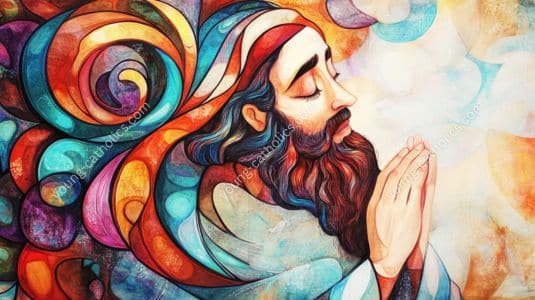
Paid subscribers may download a large copy this digital artwork without watermarks, suitable for use in bulletins, social media, newsletters, etc., free of charge by clicking here. You must be logged in as a paid subscriber to access the file.
Only current paid subscribers have the rights to use the artwork.

The Bible
If you want to understand the Bible better, there are good ways to start. The Book of Isaiah is just one part of a much bigger story. The whole Bible helps us know God and live as His people.
To learn more, visit this page about the Bible. It has simple ideas, prayers, and tips for reading the Bible. It is made for young Catholics, but anyone can use it.
Questions and Answers about the Book of Isaiah
Who wrote the Book of Isaiah?
The first part was written by the prophet Isaiah. Later parts may have been written by his followers. The whole book shares Isaiah’s message.
When was the Book of Isaiah written?
Isaiah lived around 700 years before Jesus. The book was written over many years during and after his life.
What is the main message of Isaiah?
Isaiah warns people to turn back to God. He also gives hope by speaking about a Savior who will come.
Why is the Book of Isaiah important to Catholics?
Isaiah points to Jesus. His words are read at Mass, especially during Advent and Lent. He helps us prepare for Jesus.
What are the servant songs?
These are poems in Isaiah that speak about a servant who suffers for others. The Church sees Jesus in these songs.
Where can I read Isaiah in the Bible?
You can find the Book of Isaiah in the Old Testament. It has 66 chapters.
Warnings, Hope, and a Savior
The Book of Isaiah is a big part of the Bible. It is in the Old Testament. Isaiah was a prophet who lived many years before Jesus. He spoke to the people of Judah during hard times. He warned them to stop sinning and to turn back to God.
Isaiah also gave hope. He said that God would not forget His people. He spoke about peace and a new beginning. He said a Savior would come, someone who would bring light and healing. Catholics believe this Savior is Jesus.
The book has 66 chapters. The first part talks about judgment and warning. The middle part brings comfort during exile. The last part speaks of a new future. The Church reads from Isaiah during Advent, Lent, and many other times. His words help us think, pray, and wait for Jesus.
Isaiah helps us trust God, even when life is hard. He reminds us that God always keeps His promises.
Your Turn
If you have never read the Book of Isaiah, now is a good time to start. Pick one chapter and read it slowly. Think about what it says about God, His people, and the promise of Jesus.
After you read, share what stood out to you. Did something speak to your life today? Leave a comment and let others know what you found. Your words might help someone else.

Leave a Reply